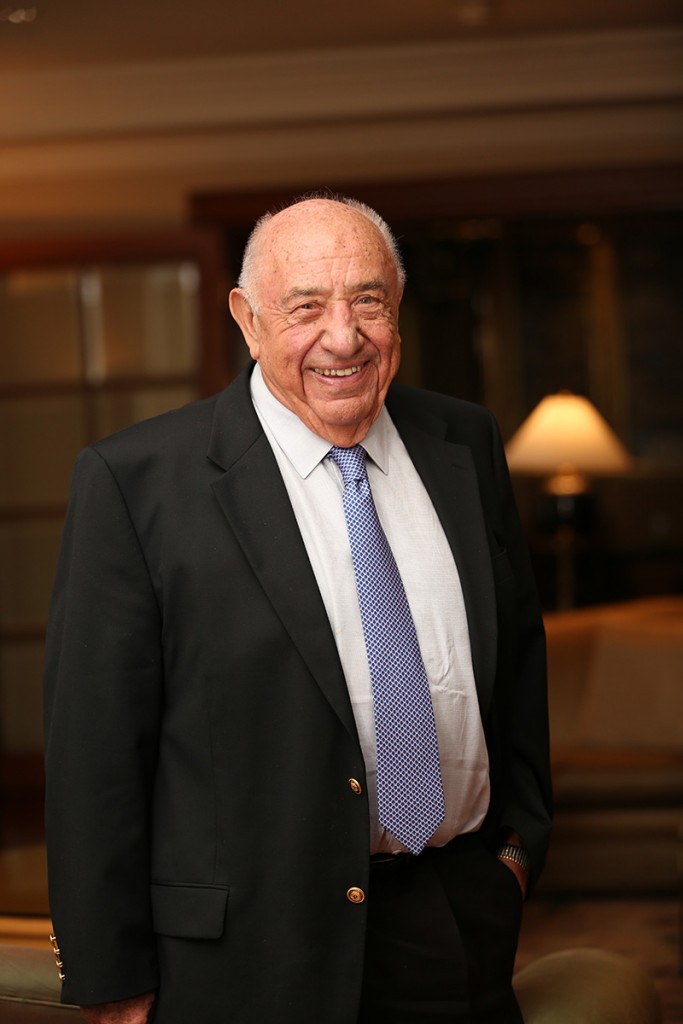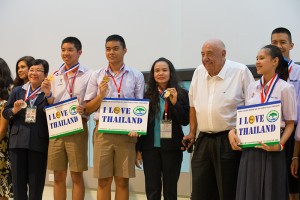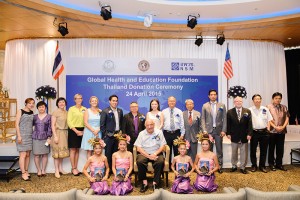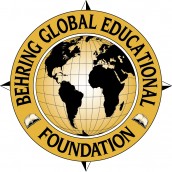What does conservation awareness, a million wheelchairs, a private Jetliner, a US football team and a classic car museum have in common? The answer: this extraordinary man.
By any measure, Kenneth E. Behring, 87, is a wealthy person. Among the many hats he has donned throughout his long and illustrious career are: Nationally acclaimed property developer, automobile salesman and businessman, NFL team owner, corporate board director and, perhaps his most significant role, internationally renowned philanthropist whose work spans continents and cultures.
 But life wasn’t always rosy for this self made billionaire. A child of the Great Depression, Kenneth Behring knows first-hand what it is like to be poor. He grew up in a working class family, doing odd jobs from age seven. Armed little more than a solid work ethic and a passion for cars, the 21-year old Behring launched a used car business in a mud lot he shared with a chicken coop.
But life wasn’t always rosy for this self made billionaire. A child of the Great Depression, Kenneth Behring knows first-hand what it is like to be poor. He grew up in a working class family, doing odd jobs from age seven. Armed little more than a solid work ethic and a passion for cars, the 21-year old Behring launched a used car business in a mud lot he shared with a chicken coop.
But within six short years he had opened his own auto dealership and had earned his first million dollars, which he then parlayed into land development, becoming one of the largest builders of single-family homes in the US. He is credited with several hugely successful high-end residential projects in Florida and California.
Having reached the pinnacle of success, Mr. Behring turned his attention to philanthropic pursuits. He donated $100 million to fund the Smithsonian Institute’s National Museum of Natural History and Museum of American History. The gift stands as the world’s largest ever cash donation to a museum.
One of his most impactful philanthropic achievements was the establishment in 2000 of The Wheelchair Foundation-which distributes the mobility aids to needy disabled people across the planet. The hugely successful program will soon mark its 1 millionth wheelchair handover later this year.
Building on this tremendous success, in 2006 Mr. Behring founded the Global Health & Education Foundation (GHEF), a non-profit organization whose work is focused on helping to alleviate chronic poverty by addressing root causes such as physical disabilities along with lack of safe water, basic sanitation and disease prevention. The GHEF uses a systematic approach to address these issues, identifying problems and applying the most effective and powerful tools available. It manages a host of international projects that provide health- and education-related assistance wherever needed, offering hope for a better future to the world’s most vulnerable communities.
 Then in 2012, Mr. Behring launched Global Natural History Day (GNHD), with the aim of inspiring youth to take an active role in preserving the planet’s environment and wildlife. GNHD is modeled after National History Day (NHD), a US program that attracts the participation of over 800,000 students annually. NHD was the first educational program of its kind to receive a Medal in the Humanities from US President Barack Obama in 2011. Mr. Behring is the main sponsor of NHD.
Then in 2012, Mr. Behring launched Global Natural History Day (GNHD), with the aim of inspiring youth to take an active role in preserving the planet’s environment and wildlife. GNHD is modeled after National History Day (NHD), a US program that attracts the participation of over 800,000 students annually. NHD was the first educational program of its kind to receive a Medal in the Humanities from US President Barack Obama in 2011. Mr. Behring is the main sponsor of NHD.
GNHD sets teams of young people to work identifying problems and generating solutions to environment-related issues under a yearly theme. Each summer, the national winners are given the chance to present their research findings at the GNHD world finals in China, sponsored by local host-city administrations. A GNHD Thailand national round has been organized, and the winners will receive travel scholarships from the Foundation to attend the finals in China.
Last year, two Thai youngsters taking part in the event devised a system which saves up to 60% of water used for showering. The pair were asked to present their project at last year’s finals in Chongqing.
Another education initiative championed by Mr. Behring is the International Museums Partnership, which purchases and donates large collections of mounted animal specimens to museums.
In 2006, Mr. Behring launched one such project in Dalian, China, with a donation of around 100 animal specimens to a local museum. The program has since grown to include thousands of specimen donations to other museums across China that recreate exotic animal habitats of Africa, North America, and Eurasia.
The program currently includes 13 museums in China, with an additional 15 sites in progress in China and elsewhere. The newest exhibition, launched at the newly opened Shanghai Natural History Museum, features a state-of-the-art, 2,600 sqm. multimedia installation.
 The idea, in his own words, is to “Use the animal specimen displays to make kids understand that we have to take better care of the earth.” He believes that anyone, regardless of economic status, has the potential to succeed and become a true leader given sufficient inspiration.
The idea, in his own words, is to “Use the animal specimen displays to make kids understand that we have to take better care of the earth.” He believes that anyone, regardless of economic status, has the potential to succeed and become a true leader given sufficient inspiration.
Mr. Behring is set to expand his charitable works in South East Asia, and plans to use Thailand as the regional base of operations. “We want to work with other ASEAN nations, and we see Thailand as the regional leader. We plan to spend more time here in the near future”, he explained, adding his opinion that Thailand “is a friendly place and we very much enjoy being with the Thai people”.
But Mr. Behring is no newcomer to Thailand, nor a stranger to its monarchy. On the sidelines at a 2001 United Nations function in New York that was also attended by HRH Princess Sirindhorn, Mr. Behring presented HRH with 1 thousand wheelchairs for distribution in Thailand. Besides sharing similar views on education, HRH and he both hold honorary professorships from China’s Shandong University, and are recipients of UC Berkeley’s Chancellor Citation.
Mr. Behring also has a keen interest in assuring access to clean water, and was once the guest of His Majesty King Bhumipol at Hua Hin Palace, where they discussed HM’s various water projects.
More recently, Mr. Behring and other foundation officials attended an official donation and MOU signing ceremony in Bangkok. The April 24 event marked an agreement with the National Science Museum and the Zoological Park Organization, Under the Royal Patronage of His Majesty The King, to donate wheelchairs and animal specimens for use in museums and zoos across Thailand.
“Thailand needs a world class museum. Education is the most powerful tool to create awareness and understanding … to inspire action and affect change” he explained.
When asked why a man who has everything would choose to spend his golden years as a globe-trotting advocate of universal wellness and environmental conservation, the response focused on his vision for a better world: “Although I’m a large property owner, I believe that we don’t own the land on this planet. We’re just using it-borrowing it from our great, great, great grandchildren”. He continued: “We can make it worse or make it better, and we’re trying to get young people involved to make it better.”
